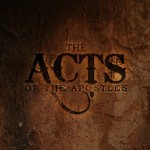Tips for Following my Blog through Social Networks
Last week, I wrote a post called “How did you get from there to here?” In that post, I asked how my readers normally reached my blog, and I also asked if I linked to old posts too frequently (especially on Twitter and Facebook).
While some readers said they would prefer less frequent links to older posts, several people – both in the comments and privately to me – encouraged me to continue linking to the old posts. Plus, I continue to get comments (on the posts, through Twitter, and on Facebook) when I link to those older posts. So, for now, I’m going to continue linking to the older posts on Facebook and Twitter.
But, I want to offer some tips for those who are not interested in reading my older posts.
1) Typically, I schedule new posts to publish at 9:00 a.m. and 12:00 p.m. (noon). Some weekends, I only post one post per day, and that post will be published at 9:00 a.m. My 9:00 a.m. post is usually a longer post, while the noon post is typically a shorter post or a response/link to another blogger’s post.
2) During the week (Monday-Friday), I link to older posts on Facebook and Twitter only. I link to one old post each from 2007, 2008, 2009, 2010, and 2011. I try not to link to the same post within the same month, and it’s usually much longer between repeated older links.
3) Except for Google+, all of my other social network connections go out automatically. I use leenk.me to automatically publish links to new posts on Facebook and Twitter. I use HootSuite to schedule links to older posts on Facebook and Twitter. I also use Subscribe2 to automatically send out emails about new posts to email subscribers.
4) My RSS feed, emails to subscribers, and Google+ stream only include links to new posts. No older posts go out through those networks.
5) On Facebook, new posts always include thumbnail images, while the older posts do not include thumbnail images. I usually repeat links to new posts later in the day, but those repeats will not include a thumbnail either.
6) On Twitter, new posts always include “Blogged:” at the beginning of the tweet. Again, I usually repeat links to new posts later in the day, but those repeats will not include the term “Blogged:” at the beginning of the tweet.
I hope these tips help you decide which of my posts to read, even if you don’t want to read my older posts.
However, I do appreciate all the interaction that I continue to get on those older posts. So, if you’re interested, please continue reading and commenting.
How did you get from there to here?
People from all over the world connect and interact with me on this blog (and via other networks), and I love it! I love hearing the different stories and perspectives, especially concerning the church.
But, I wonder, what roads are people taking to reach my blog? There are several paths to reach my posts now, because I share links on several different social networks. Most of these links are posted automatically.
Would you be willing (please?) to share with me how you typically reach my blog posts? (If you use more than one method, please share that as well.)
Here are several options (but you can share others as well):
- Bookmark / Direct Connection
- Google+
- RSS feed / Feed reader
- Twitter / Twitter client
Finally, for the last few months, I’ve been sharing older posts on Facebook and Twitter. If you have seen those links, please tell me what you think about me sharing those old posts. I’ve gotten positive feedback, but I also want to make sure that I’m not sending out too many links.
Thank you for helping me! I really appreciate it.
What is and what should never be…
I don’t know why I named this post “What is and what should never be.” I guess I have Led Zeppelin on the brain.
This post is simply a personal update and a request (and opportunity) for my readers to introduce themselves (especially my newer readers, but you regulars can join in also).
So, what’s going on in my life? Well, many of my regularly readers know, I’m working on a book right now. (See my post “Scripture… As We Live It Book Project.”) I’m hoping that when I finish the book (early next year), I will be able to do less web development and finish my dissertation.
Also, I’ve recently applied for a job in Raleigh. A friend told me about the job, and I was surprised at how well it fit with my experience (both computer experience and academic experience). I’m still praying that I get called in for an interview.
Almost two months ago, in a post called “A change in diet and exercise for me… and for the church,” I said that the doctor had recently counseled me to change my lifestyle, or I would be headed toward an unhealthy life. In response, Margaret and I both changed what and how we ate and started walking for exercise working up to 5×50 minutes per week. We’re both doing well on the diet and exercise, and we’re happy with the results so far.
Over the last 3-4 weeks, I’ve worked up from walking to running. I’ve been able to run 5k (3.1 miles) several times, and I’m working on my pace now. I’m hoping to run in a 5k race in just over a month. (By the way, Margaret is also starting to run a little. We did not think she’d be able to run because she had ankle surgery a few years ago.)
I’ve had a few opportunities to teach recently. Just a few days ago, Dave Black asked me to teach on the Book of Acts in his New Testament class. (See my post “Lecture Notes: The Church by Example in the Book of Acts.”) I’m also teaching a high school level Latin course for a homeschool coop. And, I’ve had several opportunities to teach the church when we gather together on Sunday mornings. This teaching is primarily discussion-oriented, which is more difficult for me.
On the other hand, I think God is also teaching me to listen and learn more when others teach, especially when the church is meeting. I don’t know if it’s just me, but as a teaching, I love to teach. I must make sure that I’m spending at least as much time learning from others. (I’m glad that I have that opportunity when we meet with the church.)
So, that’s what’s happening in my life.
Now, it’s your turn. What not tell me and my readers something about yourself? Give us a chance to get to know you. Also, share what God is doing in your life or struggles you’ve been having so that we can pray for you.
9/11, American Patriotism, and the Kingdom of God
Today is the tenth anniversary of the date that Muslim terrorists flew airplanes into the World Trade Center twin towers and the Pentagon and attempted to fly another airplane into another target (probably in Washington DC).
The events of that day (and the events that occurred as a result of those events) have changed the United States of America and much of the world. For Americans, we learned that we are not immune to radical religious hatred.
That day, I was working in the Atlanta area. Like most people, I didn’t think much about the report that an airplane had flown into one of the skyscrapers that made up the World Trade Center complex. But, when the media began to report about the second plane flying into the second tower, everyone knew that this was a planned attack.
That realization brought with it a flood of emotions: fear, concern, compassion, hatred, sadness. You name it, and I felt it in those first few minutes. I prayed. Within a few moments, a peace and calmness overcame me.
I had been meeting with other Christians who worked in our building for several months. I sent out an email to request that we pray together at lunch. I was not surprised when many, many more people than normal met in the common conference room to pray. However, I was surprised that many who did not claim to be Christians joined us, even a few who were Hindu.
While several people shared about what they were thinking and feeling, I decided to read from Matthew 24, focusing on Matthew 24:6-8:
And you will hear of wars and rumors of wars. See that you are not alarmed, for this must take place, but the end is not yet. For nation will rise against nation, and kingdom against kingdom, and there will be famines and earthquakes in various places. All these are but the beginning of the birth pains. (Matthew 24:6-8 ESV)
I encouraged them to remember that wars, rumors of wars, even natural disasters were not to cause anxiety and concern for God’s children. Instead, we have a mission that does not depend on national defense, economic situations, or personal security. Jesus referred to this mission in the passage in Matthew 24: “And this gospel of the kingdom will be proclaimed throughout the whole world as a testimony to all nations…” (Matthew 24:14a ESV)
This is not the good news of the United States of America. Instead, it is the good news of the kingdom of God. Our citizenship is in God’s kingdom; we simply live within the United States of America.
As we prayed, I asked God to give us his peace whatever happened in the coming days, and I asked for him to keep us focused on the good news of the kingdom of God.
Later, after lunch when we had all returned to our jobs, one of my coworkers came into my cubicle and sat down. I knew that he was born in India and that he was a Hindu. We had had several very good conversations about our beliefs. I actually learned alot about Hinduism from him.
We talked about a project at work for a while, then, just as he was about to leave, he turned back to me and said, “I am so scared. My family is scared. I do not know what we should do. But, you do not seem scared at all. Why do you have so much peace?”
Under Christ’s Archy
I’ve been invited to participate in another web project. This one is called “Under Christ’s Archy,” and it’s coordinated by Henry Neufeld of Energion Publications.
Several people who read / comment on my blog are part of this project also, including Arthur and Eric. You can read about all the contributors here. I think you’ll find that Henry has invited a very diverse group of people to take part in this project, which promises to create great dialog and discussion on this topic.
So, what does “Under Christ’s Archy” mean? Well, Henry tells us on the home page (responding to something that Geoff, one of the contributors, wrote):
I think that practical application is a real need, and as a result I came up with the idea of a web site dedicated to looking at practical things we can do to live under Christ’s archy. For those who have not read the book [Christian Archy by David Alan Black], living under Christ’s archy means putting the authority of Jesus above all other authorities. It means not giving our allegiance to political systems, but first to the gospel.
Furthermore, Henry tells us about the content we can expect from the site:
What will the site contain?
- Original articles on practical actions to take in the home, church, and society to live under Christ’s rule
- Links to articles and blog posts that are relevant
- Discussion
- Questions answered by the various project participants
- Resource lists
Each contributor (myself included) has agreed to write at least one post per month dealing with the concept of Christ’s rule in our lives, in the church, in politics, in education, in theology, etc.
So far, each contributor has written an “introduction” post. You can find all of those posts and any future posts under the heading “blog and discussion.” Plus, my introduction post is called “Sticking my toes in the waters of ‘Christian Archy’.”
I hope you decide to take part in this new project. Perhaps the best way to follow the conversation (for now) is to bookmark the page or to add the site to your reader.
Please let us know what you think about the project.
Lecture Notes: The Church by Example in the Book of Acts
Last week, I had the opportunity to teach on the Book of Acts for Dave Black’s New Testament class. Several people have asked me about sharing my lecture notes.
In fact, I rarely use lecture notes, per se, and I didn’t use notes this time. I often use an outline that includes quotes from books that I want to share during the class. Plus, this class was intended to be interactive. So, while I guided the discussion, I asked for and received alot of input from the students as well.
However, I will share the outline that I used.
Since my goal was to show the church as both “gathered” and “sent” in the book of Acts, I used quotes from a book that argues that the Anabaptists saw the church in the same way. (This does not meant that ONLY the Anabaptists (historically) saw the church in this way.)
————————————-
The Church by Example in the Book of Acts
Introduction
Greek name: Πράξεις τῶν Ἀποστόλων (activities/practices/actions of the apostles)
(Used as early as Irenaeus who died in 202 AD.)
But, according to Acts 1:1, the book describes the continuing actions and teachings of Jesus Christ.
However, it’s true that the book describes what Jesus Christ continues to do and to teach THROUGH his followers, both those who are apostles and those who are not apostles.
The book is primarily narrative, like the gospels, although the genre is somewhat different than the gospel genre because it does not focus on one person.
Of course, most of the Old Testament was written as narrative, and Paul tells us that it was written down for our instruction. We are to learn from narrative Scriptures.
What does the Book of Acts illustrate for us that we can learn from?
Let’s begin with the title: Acts. The early believer saw this book as an example of the actions taken by Jesus Christ (via his Spirit) through the children of God.
What actions do we see illustrated in Acts?
I’m going to divide the actions into two groups: 1) those related to being “sent” by God, and 2) those related to be “gathered” by God.
For many, many years, the church has recognized (at times) its dual nature of both being sent by God and being gathered by God. Today, these joined ideas are expressed in buzzwords such as “Missional Community.” But, for the early church, living as a community taking part in God’s mission daily was not simply a buzzword… it was a way of life. For many today, phrases such as “Missional Community” are more than buzzwords; they also describe the way of life in Christ.
Through the centuries, other groups of Christians have recognized that they were both “sent” by God and “gathered” by God.
The Anabaptist View of the Church by Franklin Hamlin Littell:
The dominant theme in the thinking of the main-line Anabaptists was the recovery of the life and virtue of the Early Church. The ordinances which had characterized the True Church (die rechte Kirche) in that Heroic Age were to be made a program for thoroughgoing reformation. The Reformers were not willing to make so radical a break from the past, but those whose key concept was restitutio rather than reformatio were determined to erase what they considered the shame of centuries and to recapitulate the purified church life of the Golden Age of faith. (pg 79)
(From Peter Ridemann – 1506-1556):
Therefore, such a people, community, assembly, or church is gathered and led together by the Holy Spirit, which from this point forward rules, controls and orders everything in them…
The children of God… become his children through the unifying Spirit. Thus, it is evident that the church is gathered together by the Holy Spirit: also that they have their existence and are kept in existence by him, and that there is no other church apart from that which the Holy Spirit builds and gathers.
Littell:
Not only was a new historical significance given to the Great Commission, but its application was made relevant to the life of the ordinary layman. The missionary mandate was no longer the prerogative of special orders or selected professionals. The layman was no longer limited to remaining obediently in his appointed place and status. The Commission applied to the most simple believer and claimed him as an evangelist. (pg 113)
A Sent Church
a going church
– Acts 8:4-5 (Philip), Acts 11:19-21, Acts 15:36-41, Acts 16:1 (Timothy), Acts 20:1-6
a sending church
– Acts 8:14, Acts 11:22-24, Acts 13:1-4, Acts 15 (many occurrences),
a proclaiming church
– Acts 2:14ff (Peter), Acts 3:12-15, Acts 7:2 (Stephen), Acts 8:5 (Philip), Acts 9:20 (Paul immediately after being saved), Acts 13:16ff (Paul), Acts 14:12-17 (Paul)
a growing/expanding/increasing church
– Acts 2:47, Acts 4:1-4, Acts 6:7 (just before Stephen), Acts 9:31 (after Paul’s conversion), Acts 11:19-21 (Antioch – Gentiles), Acts 16:4-5, Acts 19:20 (Ephesus)
A Gathered Church
a gathering church
– Acts 2:46-47, Acts 12:12 (17) (gathered for prayer), Acts 14:25-28, Acts 15:30-31, Acts 20:7
a teaching church
– Acts 11:25-26 (Paul/Barnabas in Antioch), Acts 15:1, Acts 15:30-35, Acts 18:24-26 (Aquila/Prisca w/ Apollos), Acts 19:8-9, Acts 20:7-12
a sharing/serving church
– Acts 2:44-45, Acts 4:32-37, Acts 11:27-30, Acts 28:8-10, Acts 28:14
an eating church (hospitality)
– Acts 2:46, Acts 10:48 (Cornelius), Acts 11:1-3, Acts 16:15 (Lydia), Acts 16:32-34, Acts 20:7
Both Sent and Gathered Church
a praying church (often with fasting)
– Acts 4:24-31, Acts 10:9 (Peter praying alone), Acts 14:21-23, Acts 20:36-38 (Ephesus elders)
a following church
– Acts 16:6-8
a suffering church
– Acts 8:1
He [Paul] lived there [under house arrest in Rome] two whole years at his own expense, and welcomed all who came to him, proclaiming the kingdom of God and teaching about the Lord Jesus Christ with all boldness and without hindrance. Acts 28:30-31
Conclusion
– The church in Acts made mistakes
– But, they managed to maintain their focus on mission and community in spite of suffering by constantly and continuously following the Holy Spirit.
What happened to the Anabaptists?
So, what happened? Why did the evangelical fervor of those early Anabaptists lessen over time? Littell suggests two reasons: 1) They forgot that the Holy Spirit had gathered them together and separated them from the world, or 2) They forgot that the Holy Spirit had sent them into the world. Some groups seemed to lose their desire to follow the “life and virtue of the Early Church”, while others desired to completely isolate themselves from unbelievers and lost their “missionary mandate.”
Japanese Assembling of the Church
I met a sister named Fumie recently through Facebook and Twitter. She is from Japan, although she now lives in the United States.
Yesterday, she asked if she could write about my blog and introduce her readers to it… in Japanese!
Of course, I was honored and said that she could link to my blog and thanked her. Then, I asked her to send me the link when she had written her post, because I had never read anything about myself or my blog in Japanese… not that I could read Japanese even if I had seen it.
So, here is a link to the information about me and my blog in Japanese.
This is what Fumie told me that it says:
While I was looking for some ‘home church’ information on Twitter, I have come across with this particular blog.
The writer of this blog brings very interesting subjects and points in relation to modern churches that I myself often wonder about.
If it was me, 5 years ago, I would not have paid any attention to this blog or read this blog at all due to the differences in denomination and the use of Bible version.
Any questions or uncertainty about church gathering, he searches and bases his belief in the word of God; He has read and studied many different versions of the Bible, yet it is funny to me that I, who only use King James version, often come to the same kind of conclusions as he does. ( you have to understand the fact that I WAS one of those who advertised ‘I am an Independent Fundamental King James Only Bible Believing Christian.)
In short, I think he believes that a place called ‘church’=a place where believers assemble should be the place to encourage and edify one another. As I read his blog, I can tell that he is doing such ‘assembly’.
I become content reading his blog, knowing that someone has spelled out the point much better than I would have. Even though his blog is written in English and I write mine in Japanese, I feel like there is no need for me to restate my point; thus I tend to neglect my own blog.
His blog is easy to read (I think) and I hope you will enjoy reading as much as I do.
Awesome!
Thanks again, Fumie!
An earthquake, water main breaks, and a hurricane
This has been an interesting and exciting week for us.
Obviously, almost everyone knows about the earthquake on Tuesday that was centered in Virginia and that was felt all up and and down the east coast of the USA. I was at work when it struck, and we definitely felt it in our office. It was my first earthquake experience. (And, I’ll confess that I tweeted about the earthquake while it was happening before I thought about seeking shelter.)
Then, on Wednesday morning, a water main broke near the campus where I work. We lost water for about 6 hours that day. (Welcome back to school, students!) The next day, Thursday, we came to work to find that another water main had broken, and again we were without water for about 6-7 hours.
And, of course, this weekend we’ve been dealing with Hurricane Irene. Where we live, just north east of “the triangle,” we only had rain and winds, some gusting up to 40-50 mph. But, many of my friends “down east” and on the coast had much worse weather to deal with.
So, this has been a unique week for us.
But, how did we deal with all of these natural disasters and inconveniences? Did we become scared or angry?
I think our reactions can help us measure how much we are trusting God.
Thank you for sharing in our sufferings
One year ago, I had just returned from a two week trip to Ethiopia. The trip was amazing, and I met some wonder brothers and sisters in Christ. One of the men that I met was named Nigusse.
A few months ago, the vehicle that Nigusse and a few other Christians were riding in was attacked. The vehicle was damaged and several of the people were injured. If I remember correctly, one of the brothers ended up with a concussion.
Over the next few weeks and months, Nigusse was constantly in danger. People followed him in order to harm him. They would follow him around his city, and they would follow him to other cities.
We new about the harassment, persecution, and violence, and we were praying for Nigusse and others.
Last Friday, Nigusse flew from Ethiopia to Raleigh, North Carolina. He is planning to work on a degree here before returning to his home. My family was among a group of about 30 or so who met him at the airport, then had dinner with him afterwards.
During dinner, Nigusse brought us greetings and encouragement from the church in his city in Ethiopia. While he said many things, one thing stuck out in particular.
He said (and I’m paraphrasing), “Thank you for sharing in our suffering.”
I have heard that we can share in other people’s sufferings, but this is the first time that I’ve heard it from someone who actually suffered for the cause of Christ. This first hand account truly changes the way that I think about praying for and partnering with those who are suffering.
Scripture… As We Live It Book Project
Just over three years ago, I started a series on this blog called “Scripture… As We Live It.” Over the last three years (164 weeks actually), I’ve written 164 posts in that series – one per week – by far the longest-running series on my blog.
(If you’re not familiar with the series, and if you’re not interested in clicking the link above, then I’ll give a short explanation. In each “Scripture… As We Live It” post, I take a passage of Scripture – usually one verse – and modify it by deleting some text and adding other text so that the “re-mixed” passage looks more like the way we actually “live” it today.)
Since I started the series, several people have encouraged me to publish “Scripture… As We Live It.” You know who you are. I weighed the options for a couple of years, then I finally approached a publisher a few months ago.
I decided to talk with Henry at Energion Publications about a possible book project based on this series. I talked with Henry for several reasons: 1) I already had a relationship with him because I’ve reviewed several books for Energion. 2) I’ve heard very good things about Henry and Energion, especially from Dave Black. 3) I liked Energion’s mission statement.
After talking about the concept of “Scripture… As We Live It,” we decided to proceed with the project. So, if things go as planned, Energion Publications will publish my book based on the “Scripture… As We Live It” series sometime in early 2012.
The goal is to include 140 re-mixed passages divided into several categories. Each passage will be accompanied by a short commentary and very specific illustrations and applications. Plus, there will be discussion questions included for each category of Scripture passages.
Some of the categories will be faith, love, service, unity, church, worship, church leaders, and church gatherings. There will probably be about 15 categories, with an equal number of passages in each category.
I hope that this book will help Jesus’ followers recognize that what we say about Scripture often does not line up with how we live. I think the format of the book – being somewhat unique – will offer people a different way of looking at the subject.
I would love to hear your thoughts and suggestions about this project.









